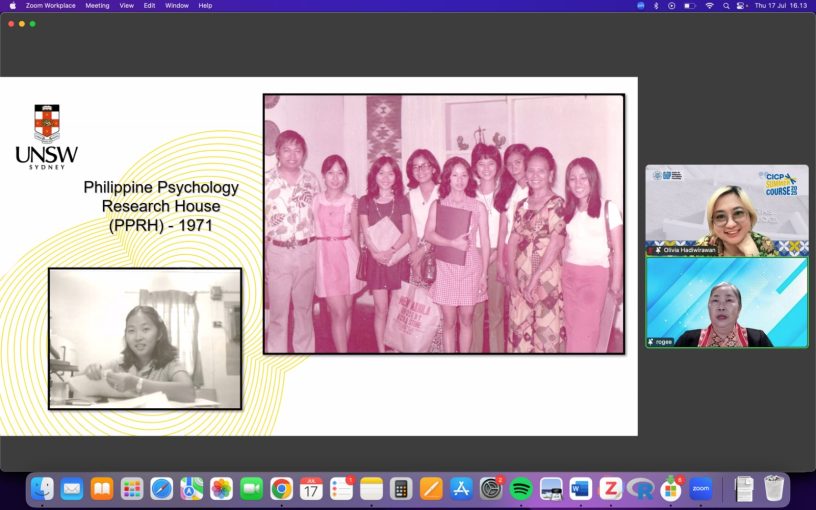
Thursday (17/07), Rogelia Pe-Pua launched the “Beyond Boundaries” International Summer Course with a reflective presentation about “Tracing the Trajectory of Indigenous Psychology: A Reflective Dialogue on Knowledge, Method, and Identity”. This presentation explain the development of Sikolohiyang Pilipino, a homegrown psychology movement pioneered by Virgilio Enriquez. She emphasized cultural identity as a foundation of psychology, stating, “Psychology is too important to be left only to psychologists.” The concept of kapwa—shared identity—was presented as central to Filipino social interaction.
Pe-Pua explained that this movement arose in response to Western psychological dominance, which often fails to reflect local realities. She distinguished between indigenization from within and from without, highlighting indigenous-born concepts and research methods. Techniques like pagtatanong-tanong, pakikipagkuwentuhan, and ginabayang talakayan were cited as essential for authentic social research.
Beyond cultural framing, Sikolohiyang Pilipino has influenced education and mental health practices. The use of Filipino language in instruction and academic writing, including dissertations, reflects the ongoing decolonization of knowledge. A milestone occurred in 1990 with the first Filipino-written PhD dissertations by Tuazon and Aguiling-Dalisay.
Concluding her presentation, Pe-Pua called for cross-cultural collaboration to build a fairer, global psychology. She urged that future psychological theories and practices be rooted in people’s lived realities—not merely imported—ensuring the science stays relevant to all.
